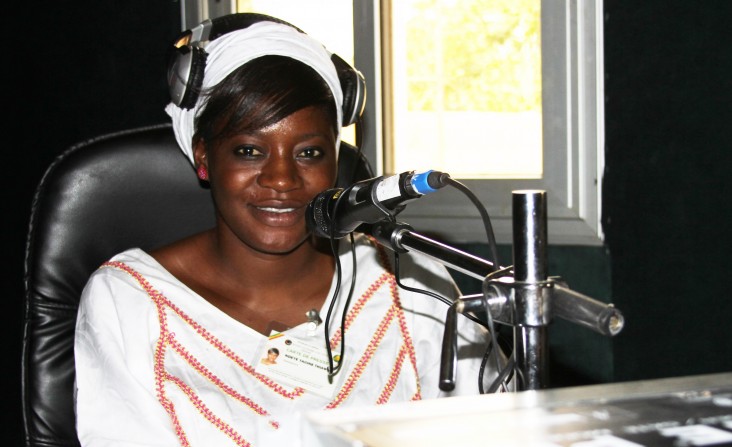
For Immediate Release
Thiénéba, November 20, 2013: The United States, through the U.S. Agency for International Development (USAID), launched a second phase of a project that promotes gender equity and women’s empowerment through community radio for thousands of village women in central Senegal.
The new three-year phase of the project will expand the training and support for a cadre of women by 25 villages in addition to continuing support for the original sixty. Funding for the project is about $1.5 million.
Since 2010, the Women’s Leadership and Civic Journalism project has successfully increased the presence of women in local media in the Thiès and Diourbel regions. Financed by USAID and implemented by World Education and the Rural Association to Fight AIDS (ARLS), a local NGO, the project provides technical support for the Gindiku FM radio station based in Thiénéba.
The station, which focuses on women’s leadership and community development most of the day, reaches more than 150,000 listeners within its 50 km radius and to become a vibrant source of information to local communities. The project operates in 60 villages located within 13 rural communities, but the station reaches as many as 700 more villages with programming on women’s issues, health, education, political participation, human rights, and entertainment.
“We salute the leaders of this project for their support of this project, encouraging positive changes in gender relations for a more fair, balanced and development-oriented society,” U.S. Deputy Chief of Mission Sandra Clark said at the launch.
In addition to training the women journalists, the project also supports community based “listening groups” moderated by the reporters; and helps communities carry out activities that promote leadership and equal status for women.
The 85 reporters create and present the radio station’s content ranging from real-time coverage of community events to feature interviews with female leaders, which portray women in ways that encourage others to take on leadership roles. Male opinion leaders, especially religious elders, are engaged to support project goals and express this support over the radio and in communities.
To address underlying economic barriers to women's leadership, the project has established a credit line to enable listening group members to undertake income-generating activities such as small commerce and a community health insurance “mutuelles.” The income for women increases their economic independence as well as the well-being of their families.
The health “mutuelles” also extend project benefits to a wider population, helping women to better manage the health of their families, a key new leadership role that creates a sense of empowerment for women to advocate for an elevated role for all women in their communities.
“These women have become stars in their villages,” Project Coordinator Khadidiatou Gueye said. “Through their work, they have gained both the knowledge and courage to influence decision-makers for the good of their entire communities.”







Comment
Make a general inquiry or suggest an improvement.